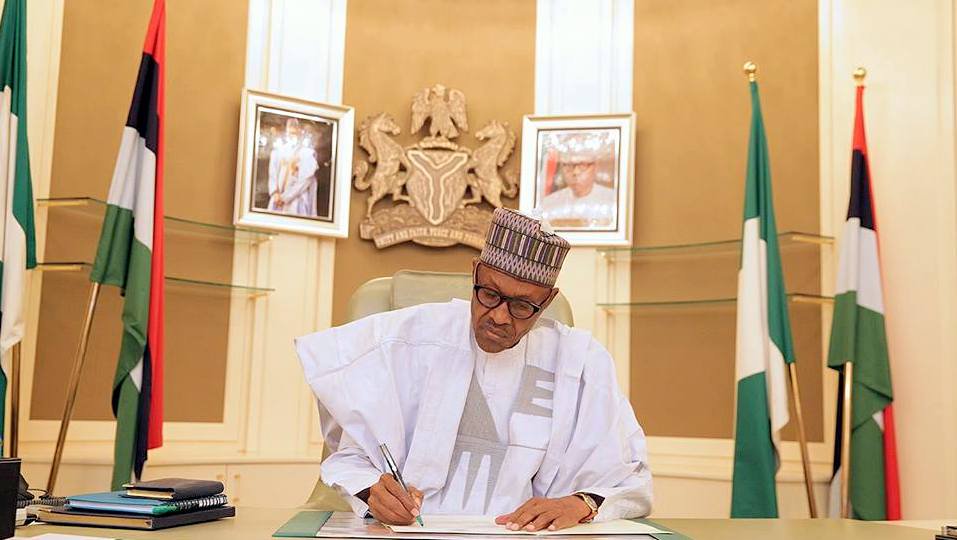The Nigerian Electricity Regulatory Commission had postponed the enforcement of its prospered 2019 Multi- Year Tariff Order (MYTO) by three months as part of the measures for cushioning the pains of the COVID-19.
This was contained in a statement released by the Minister of Power, Engr. Saleh Mamman.
According to him, the decision was one of the government’s actions taken to ensure citizens have power supply in this difficult time.
Mamman said: “The 3-month delay in the implementation of tariff measures is consistent with His Excellency the President’s announcement on March 29th granting a moratorium for certain Federal Government funded facilities to the Nigerian Public.
“I will also commend players in the NESI that have made commitments to ensuring stable power supply in this period. We must work together.
“I must specifically commend the Distribution Companies that have a direct interface with the citizens.
“Many of the Distribution Companies have announced that they will take measures to maintain power supply to citizens in this difficult time. I would like to implore that the DISCOs uphold these commitments.”
The Minister explained that Key Emergency measures being taken to support the NESI (Nigerian Electricity Supply Industry) are as follows:
“1. Delay in tariff actions for 3-months to limit economic hardship on Nigerians in this difficult time
“2. Ongoing engagements with key players involved in the NESI to ensure sustainable power supply. We are working with the CBN to ensure payments to the generators and gas suppliers through the Payment Assurance Facility (PAF) are expedited to support power supply. TCN is creating emergency measures to ensure staff will be available to monitor the grid and perform technical interventions.
“3. Based on feedback of Nigerians through the Public Hearings on Tariffs, the Ministry acknowledges the sentiment from consumers: Nigerians are willing to pay for services rendered by the DisCos, but this willingness is conditioned on definite improvement in quality of supply and adequate metering.
“4. The Ministry is supportive of measures taken by NERC to transition to a “service reflective” tariff system in the NESI. The Ministry is engaging with NERC to ensure:
The “service reflective” tariff is implemented with equity, DISCOs must present plans for improving service across their entire network ii. The enforcement of Order NERC/197/2020 regulating the Estimated Billing Methodology. This is to ensure that metering is accelerated, and customers protected from arbitrary billing.
“5. We agree with NERC that this approach is more equitable and will encourage investment in the sector. This will also transition the NESI to a contract based market with appropriate regulatory oversight as envisaged by the EPSRA (Electric Power Sector Reform Act).
“6. The Ministry also has a number of initiatives to support electricity access to the rural and underserved communities through the Rural Electrification Agency (REA) focusing on Solar Home Systems and Solar Mini-Grids. REA has support from the World Bank, African Development Bank, USAID, DFID and other key development partners to help accelerate power access. The Ministry is in discussions with the Central Bank of Nigeria on measures to help accelerate access to Solar Home Systems and Solar Mini-Grids.”
The statement added that the Ministry will continue driving infrastructure investments with the Siemens Presidential Power Initiative (PPI) and the Transmission Rehabilitation and Expansion Program (TREP) to support increased power supply.
The minister said “Metering is critical to ensuring sustainable and transparent revenue collection in the NESI. The Ministry is working with NERC to review the MAP (Meter Asset Provider) regulation to ensure it is fit for purpose with our evolving global factors. We are also working with the Ministry of Finance and Customs to ensure we have a regime for duties that aligns to our need for accelerated deployment of electricity components and tools.
“9. The sector must be sustainably managed without an endless intervention of funds by the Government. The Power Sector Recovery (PSRP) Financing Plan is being updated. The updates include: an alignment of available resources and setting of a firm timeline for the Government to exit its tariff support. The Financing Plan will be followed rigorously, especially at this time with tightening fiscal resources for the Government. We are continuing discussions with the World Bank on financing for the sector in alignment with the PSRP Financing Plan and hope to conclude the discussions soon.”
The Ministry, according to him, would continue to engage with key NESI players in this difficult time to ensure sustainability of supply and improved outcomes.
